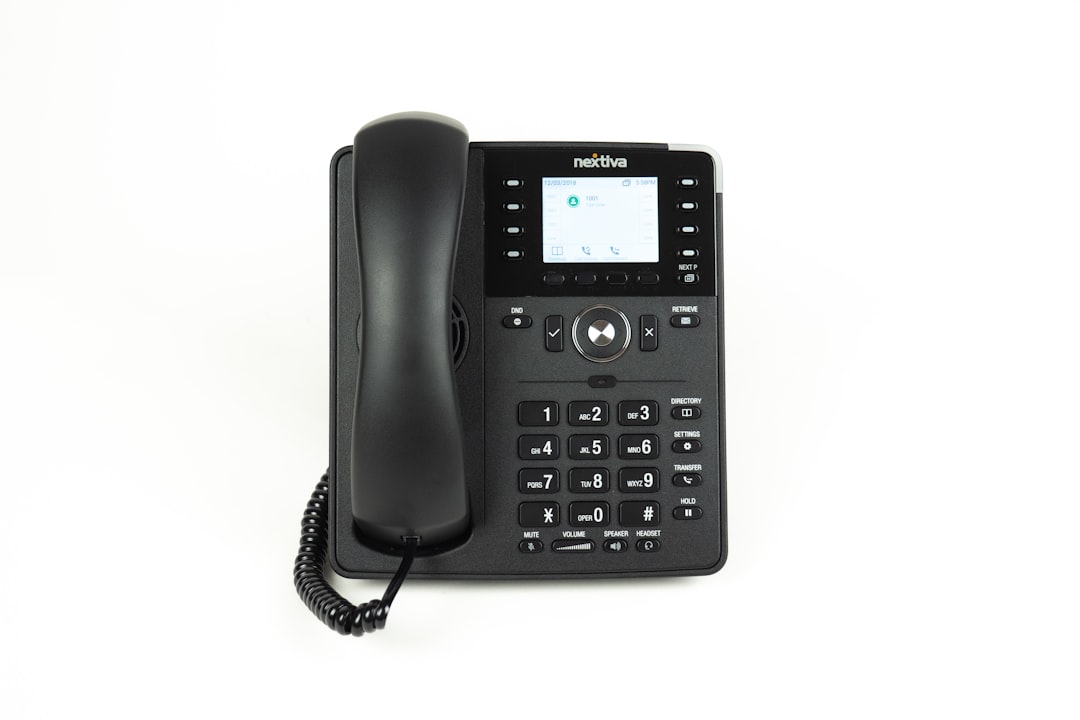Robocalls, automated phone messages used for scams and identity theft, are a widespread nuisance in Pennsylvania, especially among landline users. Robocall Attorney Pennsylvania play a crucial role in protecting consumers through legal guidance, blocking solutions, and advocating for stricter regulations. Existing federal and state laws offer robust protections, with phone carriers like Verizon, AT&T, and T-Mobile providing advanced call-screening features to combat robocalls. Emerging technologies like artificial intelligence (AI) and machine learning are expected to significantly improve protection against these unwanted calls in the future.
Pennsylvania residents face a growing problem with robocalls, but there are solutions. This article explores the impact of automated phone calls on the state’s citizens, delving into legal protections and the role of phone carriers. We analyze popular carriers’ anti-robocall measures and present effective blocking strategies for Pennsylvania robocall attorneys. Additionally, we look ahead to emerging technologies shaping the future of robocall mitigation, offering a comprehensive guide for those seeking relief from this nuisance.
Understanding Robocalls and Their Impact in Pennsylvania

Robocalls, automated phone calls that deliver recorded messages, have become a widespread nuisance in Pennsylvania and across the nation. While many robocalls promote legitimate services or offer sales pitches, an increasing number are used for fraudulent purposes, such as scams, identity theft, or political deception. These unwanted calls can disrupt individuals’ daily lives, leading to stress, frustration, and even financial loss. In Pennsylvania, where a significant portion of the population relies on landline phones, the issue is particularly pronounced.
Pennsylvania residents often become targets for robocallers due to their personal information being readily available online. Scammers exploit this accessibility to gain phone numbers and use them for automated dialing campaigns. A robocall Attorney in Pennsylvania plays a crucial role in helping citizens combat these relentless calls by providing legal guidance, offering blocking solutions, and advocating for stricter regulations to protect consumers from these intrusive practices.
Legal Perspective: The Role of State Laws in Robocall Blocking

In Pennsylvania, the legal perspective on robocall blocking is shaped by state laws designed to protect consumers from unwanted and fraudulent phone calls. The Communications Act of 1934, as amended, provides a framework for regulating telephone solicitation and unwanted calls. This legislation empowers both federal and state agencies to take action against violators, including robocallers. Pennsylvania-specific regulations, such as those enforced by the Pennsylvania Public Utility Commission (PUC), further strengthen consumer protections.
Robocall Attorney Pennsylvania plays a crucial role in navigating these legal landscapes. Consumers who believe they have been targeted by illegal robocalls can seek legal redress through lawsuits or complaints to regulatory bodies. Attorneys specializing in telecommunications law help clients understand their rights and pursue appropriate actions, ensuring that state laws are enforced effectively against rogue robocallers.
Popular Phone Carriers in PA and Their Anti-Robocall Features

In Pennsylvania, several popular phone carriers offer robust solutions for robocall blocking, providing residents with much-needed protection from unwanted automated calls, especially those from robocall attorneys. Verizon, AT&T, and T-Mobile are among the leading service providers in the state known for their comprehensive call filtering and blocking technologies.
Verizon, for instance, has implemented advanced call-screening features that allow users to block and report spam calls. AT&T offers a robust ‘Smart Call’ feature that uses machine learning to identify and filter out robocalls. T-Mobile also provides a dedicated app, called nCode, which gives users control over their calling experience by blocking unwanted calls, including those from known robocall attorneys. These carriers continuously update their systems to stay ahead of emerging robocalling trends, ensuring Pennsylvanians enjoy a quieter and safer communication environment.
Effective Robocall Blocking Solutions for Pennsylvania Residents

In today’s digital era, robocalls have become a ubiquitous and often frustrating aspect of daily life for Pennsylvania residents. These automated phone calls, frequently from unknown sources, can be intrusive and sometimes even dangerous, especially when they’re from scammers posing as a robocall Attorney Pennsylvania. Fortunately, several effective solutions are available to combat this growing issue.
One of the most reliable methods is to utilize phone carrier-offered blocking services. Many major carriers in Pennsylvania now provide built-in call filtering and blocking features that can significantly reduce the number of robocalls received. Additionally, third-party apps designed to identify and block these automated calls are becoming increasingly popular. These tools learn from community feedback to constantly update their databases, ensuring a more robust defense against unwanted robocall Attorney Pennsylvania and other persistent callers.
The Future of Robocall Mitigation: Emerging Technologies and Trends

The future of robocall mitigation lies in advanced technologies that leverage artificial intelligence and machine learning algorithms. These innovative solutions are increasingly capable of identifying and filtering out unwanted calls with unprecedented accuracy. By continuously training on vast datasets, these systems can adapt to new tactics employed by scam artists, ensuring a more robust defense against robocalls. As the use of voice over IP (VoIP) platforms expands, so does the need for sophisticated call blocking mechanisms. Pennsylvania phone carriers are at the forefront of this evolution, integrating cutting-edge technologies into their services to provide subscribers with enhanced protection from intrusive robocalls, particularly those targeting individuals seeking legal counsel.
Emerging trends indicate a shift towards more proactive and comprehensive approaches to robocall blocking. This includes the development of dynamic call classification systems that can categorize calls in real time, allowing for tailored responses. Additionally, the integration of caller ID data with advanced analytics promises to provide users with more informed decisions regarding incoming calls. As the landscape of robocalling continues to evolve, so must the countermeasures taken by both carriers and consumers. Staying ahead of these trends ensures that Pennsylvania residents, especially those in need of legal services, remain protected from the nuisance and potential dangers posed by unwanted robocalls.






